Current Projects
Country: Uganda
Showing 1 - 25 of 28
28 results found
To eliminate uncontrolled releases of mercury from healthcare settings
To fast-track readiness and early actions to implement the post-2020 Global Biodiversity Framework by providing financial and technical support to GEF-eligible Parties to the Convention on Biological Diversity (CBD) in their work to review and align their national targets, NBSAPs, policy frameworks, monitoring frameworks and finance with the Global Biodiversity Framework
To transition the Mt. Elgon region to a sustainable, biodiverse, climate-resilient, integrated landscape with efficient coffee and staple crops (maize, banana and Irish potato) value and supply chain
To enhance national-level institutional and technical capacities for the 2021-2022 UNCCD reporting process in the context of the UNCCD Strategic Framework 2018-2030 and SDG15.3
To reduce the use of mercury in the ASGM sector in Uganda through a holistic, multisectoral, integrated formalization approach, and increase access to traceable gold supply chains and finance for adoption of sustainable mercury free technologies
Facilitate the implementation of the Stockholm Convention in participating countries through the development, review and update of the NIPs and submission to the Conference of the Parties (COP) of the Convention
To strengthen institutional capacity for effective implementation of the Nagoya Protocol and to conduct an effective awareness campaign on Access Benefit Sharing (ABS) in Uganda
To assist GEF-Eligible Parties to the Cartagena Protocol on Biosafety to prepare and submit their Fourth National Reports on measures that each Party has taken to implement the Cartagena Protocol on Biosafety
To support eighteen (18) developing countries prepare and submit National Communications (NCs) and Biennial Update Reports (BURs) that comply with the United Nations Framework Convention on Climate Change (UNFCCC) reporting requirements while responding to national development goals. Participating Countries at CEO Endorsement Phase are: - Afghanistan; Azerbaijan; Benin; Burundi; Guinea-Bissau; Kuwait; Mauritania; Pakistan; Rwanda, St. Vincent and the Grenadines; Sao Tome and Principe; Senegal; Sierra Leone; Somalia; Suriname; Uganda; Viet Nam; and Yemen
The objective of the project is to increase the capacity of government and local communities in Uganda to implement EbA in wetland and forest ecosystems to reduce vulnerability to climate change.
To enable country Parties to collect necessary biophysical, socioeconomic data, establish sound reporting and monitoring systems at national level and report against the UNCCD Strategy
Provide participating countries targeted financial and technical support to prepare new or updated and improved TNAs, including Technology Action Plans (TAPs), for prioritized technologies that reduce greenhouse gas emissions, support adaptation to climate change, and are consistent with Nationally Determined Contributions and national sustainable development objectives
To provide financial and technical support to GEF-eligible Parties to the Convention on Biological Diversity (CBD) in their work to develop high quality, data driven sixth national reports (6NR) that will improve national decision-making processes for the implementation of NBSAPs; that report on progress towards achieving the Aichi Biodiversity Targets (ABTs) and inform both the fifth Global Biodiversity Outlook (GBO5) and the Global Biodiversity Strategy of 2021 – 2030.
To Assist GEF-Eligible Parties to the Nagoya Protocol on Access and Benefit Sharing to prepare and make timely submission of their Interim National Reports on measures that each party has taken to implement the Protocol in line with Article 29
To support eighteen (18) developing countries prepare and submit National Communications (NCs) and Biennial Update Reports (BURs) that comply with the UNFCCC reporting requirements while responding to national development goals
Development of National Action Plans to reduce the use of mercury and mercury compounds in, and the emissions and releases to the environment of mercury from, artisanal and small-scale gold mining and processing is facilitated by the use of scientific and technical knowledge and tools by national stakeholders in participating countries.
To strengthen national capabilities for implementation and scaling up of evidence-based, innovative, diversified and environmentally sound disease vector control interventions (with special emphasis on malaria) with multi-stakeholder participation within context of IVM
To Assist GEF-Eligible Parties to the Cartagena Protocol on Biosafety to prepare and make timely submission of their Third National Reports on measures that each party has taken to implement the Protocol in line with Article 33
To support thirty nine (39) Least Developed Countries (LDCs) and Small Islands Developing States (SIDS) prepare and submit good quality initial biennial update reports to the UNFCCC that comply with the convention's reporting obligation
To strengthen the capacity for implementation of the updated POPs Global Monitoring Plan (GMP) and to create the conditions for sustainable monitoring of POPs in the African Region
To support Uganda in meeting its obligation to the UNCCD Convention through Alignment of NAP with the 10 – Year Strategy and reporting and review process for the UNCCD
Project Objective: With the overarching goal of integrating CBD Obligations into National Planning Processes through Enabling Activities, the main objective of this project is to enable GEF eligible LDCs and SIDs to revise the National Biodiversity Strategies and Action Plans (NBSAPs) and to develop the Fifth National Report to the CBD
To establish a working dialogue between equatorial African Governments that focuses on transboundary transport of major macronutrients in view of creating regional cooperation to advocate for changes in national and regional rural development programs
To mainstream energy efficiency (EE) measures into housing policies, building codes, and building practices in East Africa and to achieve considerable avoidance of CO2 emissions as a result of improved building practices.
To Assist GEF-Eligible Parties to the Cartagena Protocol on Biosafety in Africa to prepare and make timely submission of their Second National Reports on measures that each party has taken to implement the Protocol in line with Article 33
Showing 1 - 25 of 28




